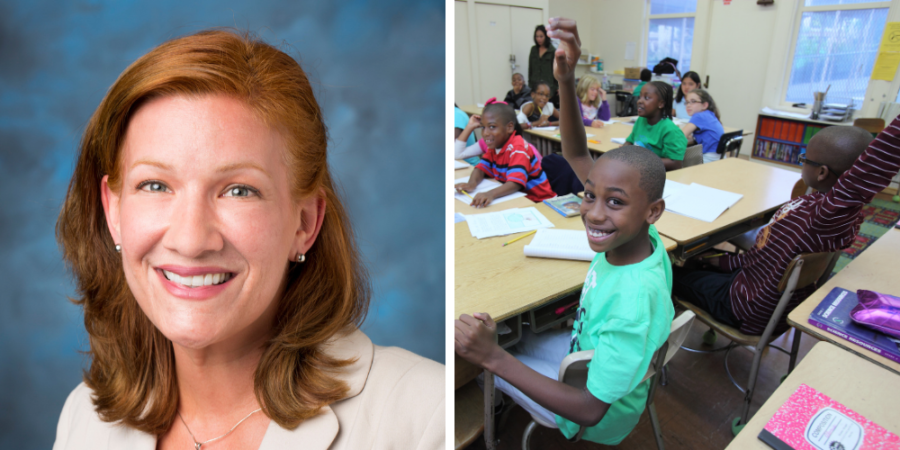
The racial injustices of 2020 gave rise to long-overdue discussions about race in every type of community across America—from workplaces and families to schools and places of worship. But such conversations are far from new for Sheri Atwater, a professor in SOE’s Department of Specialized Programs in Professional Psychology.
For nearly 20 years, Atwater’s professional expertise and scholarship have centered on facilitating dialogue about racial issues in K-12 classrooms (Castro-Atwater, 2020; 2016; 2008; 2003). “In order to help students discuss race with their teachers and peers, teachers need to become skilled facilitators who are knowledgeable about racial issues, comfortable with their own racial identity, and able to support students in these difficult dialogues,” she says.
In 2020 she was invited to give virtual presentations to several renowned schools, including teachers and administrators at the Aaron School for Special Needs (K-12); the nationally-recognized Rebecca School for students on the Autism Spectrum (age 4-21); and the Quad Manhattan (NYC), an afterschool and summer program designed for twice-exceptional (“2e”) K-12 students. “My work highlights the role of racial implicit bias on educator decision-making and disciplinary practices,” Atwater says. It also stresses the need to understand one’s own comfort level with race and identity, she adds, and examines the detrimental effects of “color-blind racial ideology,” which denies the reality that race affects our perceptions.
When faced with comments or questions about race from students, many teachers ignore, sidestep, or dismiss them due to their own discomfort or lack of experience discussing the topic. Atwater creates opportunities for teachers to learn and practice these conversations using a developmental Multicultural Response Framework (MRF) she pioneered (Castro-Atwater, 2008), by addressing a series of difficult, real-life racial vignettes. “Through this method, I stress the importance of ‘practicing in a safe space’ in order to ‘prime the brain’ for discussions that might arise in the classroom,” Atwater says. After participants practice what to say and do when presented with these “teachable moments” about race, they come together to discuss the difficulties they encounter, and to unpack their responses and perspectives.
Atwater then helps teachers align their curricula and learning outcomes to the Social Justice Anchor Content Standards (Teaching Tolerance, 2018), which focus on four domains: identity, diversity, justice, and action (IDJA). This exercise helps teachers develop concrete lesson plans to take back to their students.
Ultimately, Atwater’s workshops empower K-12 teachers to navigate challenging conversations about race successfully. Her virtual presentations have reached more than 300 educators across the country since fall 2020, with more to come. “I’m excited to represent LMU in being part of the national social justice movement in this country, during this taxing but important time of reckoning,” she says.



